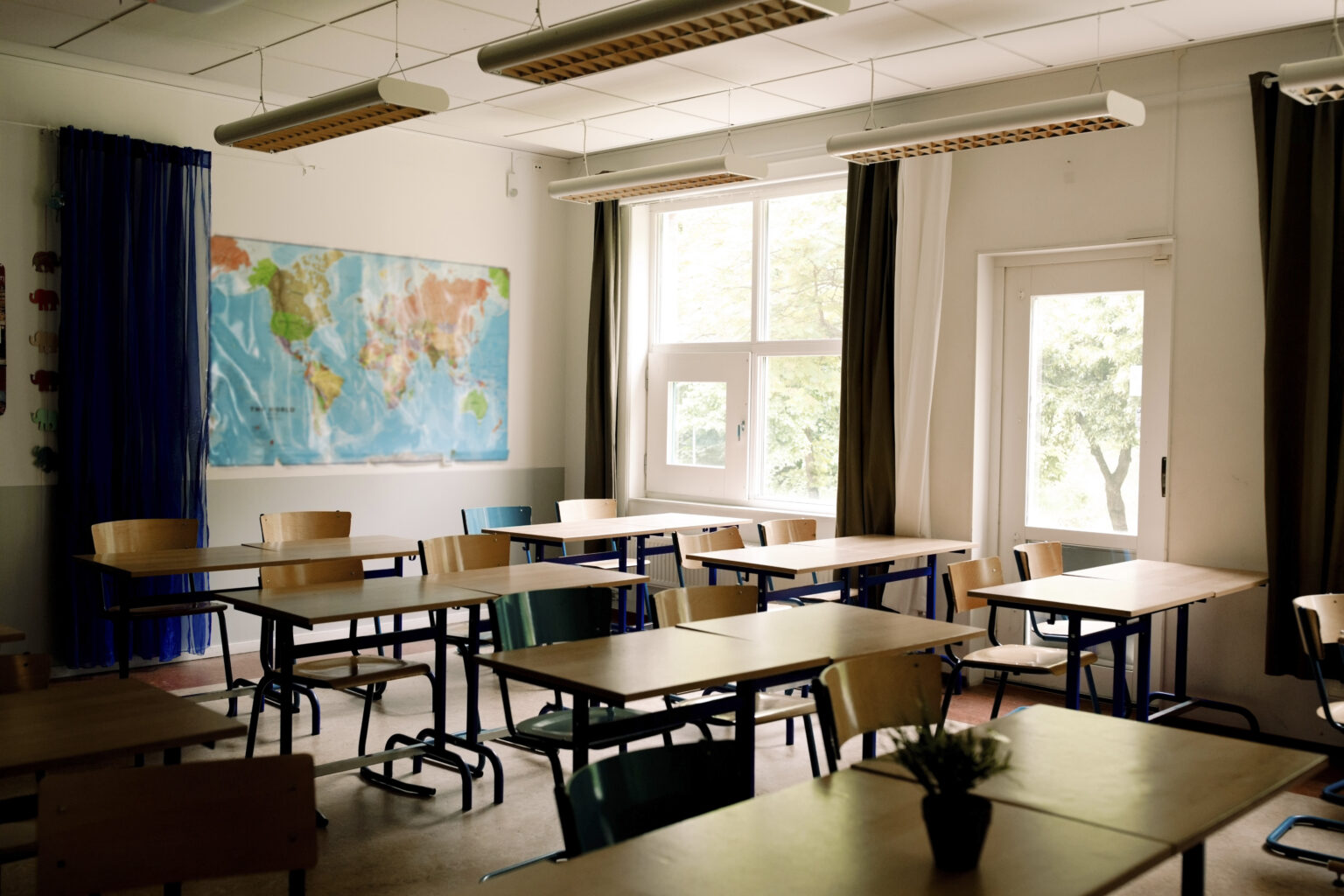0:24
Commentary
Commentary
There’s no logical reason to deny all localities a funding tool for school-building
This is the story of two localities in Virginia.
The General Assembly has granted the first community the ability to raise sales taxes to help build new schools or pay for major renovations. But the legislature, in its dubious wisdom, has denied that same lifeline to the second – and to most other cities and counties around the state.
The prohibition is mystifying, even absurd. Some legislators will try again in 2024 to end this inequitable, illogical treatment, including Sen. Jeremy McPike, D-Prince William, who is among the sponsors.
Virginia Board of Education backs new funding formula for school divisions
Danville is one of only nine localities in Virginia that has gained the Assembly’s blessing to raise its sales tax rate by a penny and earmark the money for school construction. The need for new buildings is mammoth around the state: The legislature’s own Commission on School Construction and Modernization put the tab at $25 billion for K-12 buildings that are at least a half-century old.
Danville Public Schools plans to use the new money to – among other things – renovate George Washington High School, which was built in 1955. The division will update infrastructure to boost access to technology, expand the library and add a STEM academy. It also will renovate Langston School, built in 1957, to allow expansion of its existing adult education offerings and will relocate the Galileo Magnet School there.
I’m nearly Medicare-eligible. Both of those schools are older than me.

The one-cent sales tax should generate $141 million over 20 years in Danville. “We know that these needed renovations will positively affect morale, student achievement, instruction, safety and more,” Superintendent Angela Hairston said soon after Danville residents approved the increase in a November 2021 referendum. The division has 5,700 students.
Without the tax, division spokeswoman Lanie Davis told me by email, “Projects such as these would not have been possible and would have been placed back on the back burner.”
“We would have needed another funding source,” she continued, “such as a referendum for a general obligation bond supported by [the] real estate tax.” Many localities depend heavily on the real estate tax for basic services, and they can’t stretch that money to pay for new schools and major repairs.
Contrast Danville’s situation with what school leaders face in Stafford County. The division has 1.9% growth annually – the fastest-growing in Virginia, an official there said – and it’s the eighth-largest division in the state with nearly 32,000 students. Nearly half the students take part in the federal free lunch program, an indicator of poverty.
Superintendent Thomas Taylor told me the system is building two elementary schools and one high school just to cope with the growth. “I also have the need to replace three schools,” he added, “but that would increase the county debt service, and that would jeopardize the bond rating.”
Among the biggest challenges are the conditions of Drew Middle School, which opened in 1951 as a high school, and Hartwood Elementary School, which opened in 1963.
Drew Middle “is just falling apart,” he said. The heating, cooling and plumbing systems are deficient; so are the roof, floors and windows.
Meanwhile, Hartwood is the only school in the county that is on well water and a septic system. Because of that, school administrators must limit the number of people who come into the school.
If the legislature provided Stafford County the option to raise the sales tax, and voters approved the levy, it would provide about $25.6 million annually. “This would be a huge tool in the toolkit,” Taylor said.
Indeed it would. The fact the General Assembly has shot down attempts in recent years to allow every locality this mechanism doesn’t make sense.
Besides Danville, my so-called “Sainted Nine” localities are the counties of Charlotte, Gloucester, Halifax, Henry, Mecklenburg, Northampton, Patrick and Pittsylvania. As my colleague Nathaniel Cline reported, local governing bodies can adjust real estate tax rates, but they can’t change the sales tax rate unless the Assembly gives them an explicit thumbs up.
Legislators have carried previous bills that provided the Sainted Nine with this coveted financing option. Voters then must approve the tax increase in a referendum. In 2019, Halifax County became the first to gain the Assembly’s blessing.
Recent attempts, though, to expand the tool statewide have failed – often in the GOP-controlled House of Delegates. Democrats, however, will have the majority in both chambers in January and are pushing for a change; some Republicans will, too.
When a kid goes to school, they’re not going to a Democratic or Republican school. They’re going to a school with a leaky roof. – Sen. Jeremy McPike, D-Prince William
In 2021, Virginia invested nearly $1.3 billion into programs distributing grants and loans for school construction. That’s a fraction, however, of the overall need. And each year, buildings get a little older, and technology gets a little more outdated.
Why the previous pushback in Richmond? Two reasons are likely.
One, Republicans often detest raising taxes as part of their raison d’être. Yet some Republican legislators sponsored the sale-tax tool when it benefited their constituents.
Second, if localities are figuring out their own finances and can bypass the elected officials at the state Capitol, why do we even need those pooh-bahs?
The status and ego of the 140 legislators could take a bruising, which may or may not impact their re-election prospects.
Sen. McPike, who’s a member of the school modernization panel, said his fellow legislators should put students first.
“When a kid goes to school, they’re not going to a Democratic or Republican school,” he told me. “They’re going to a school with a leaky roof.”
The sales tax increase also captures travelers moving through a community who might sit down at a local restaurant or buy items from a merchant in town.
There’s no reasonable explanation for why a handful of cities and counties can take advantage of this financing strategy, while the others are locked out. Let every locality win.
And don’t worry, lawmakers: Your constituents will love you for this – especially the folks whose children attend classes in decaying school buildings.
YOU MAKE OUR WORK POSSIBLE.
Our stories may be republished online or in print under Creative Commons license CC BY-NC-ND 4.0. We ask that you edit only for style or to shorten, provide proper attribution and link to our website. AP and Getty images may not be republished. Please see our republishing guidelines for use of any other photos and graphics.






Roger Chesley